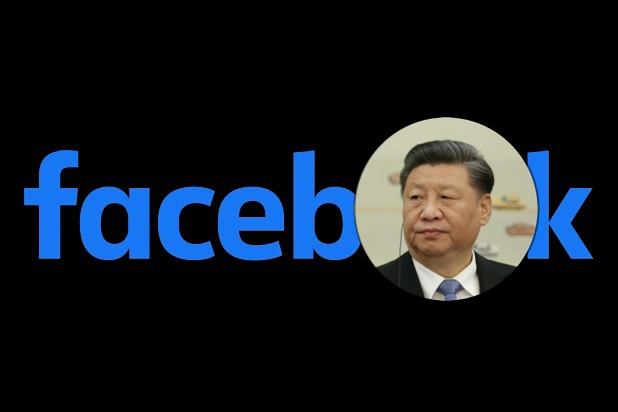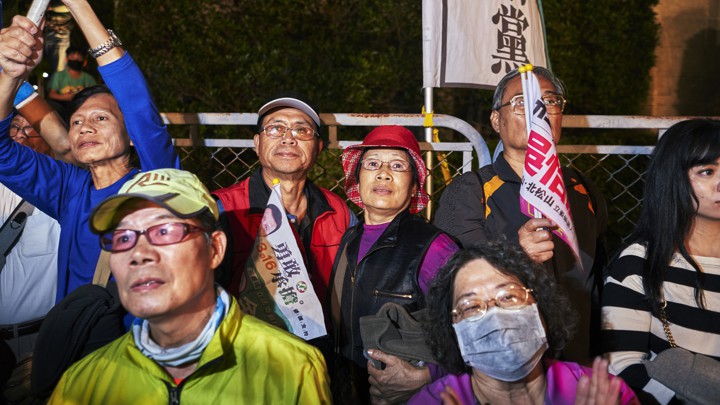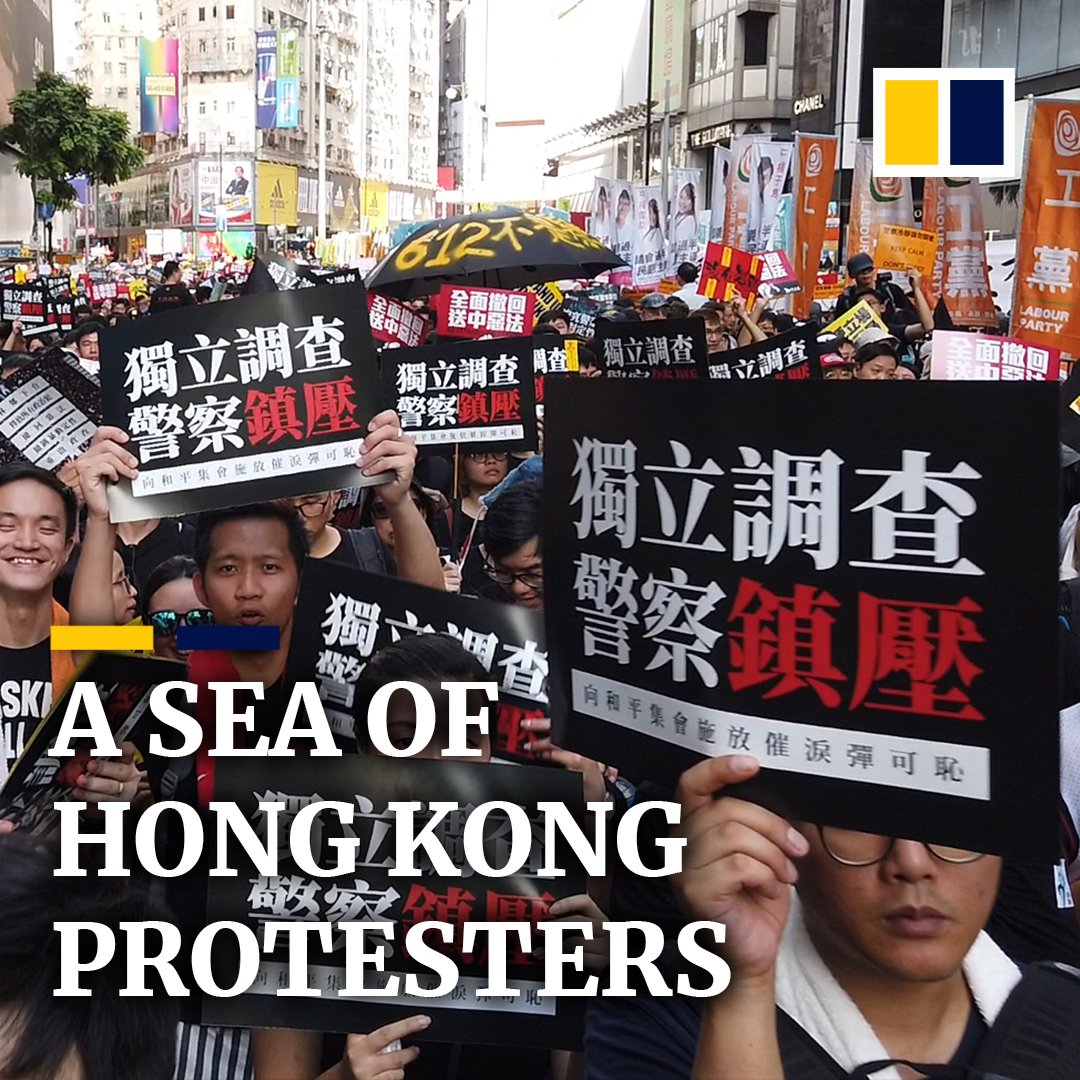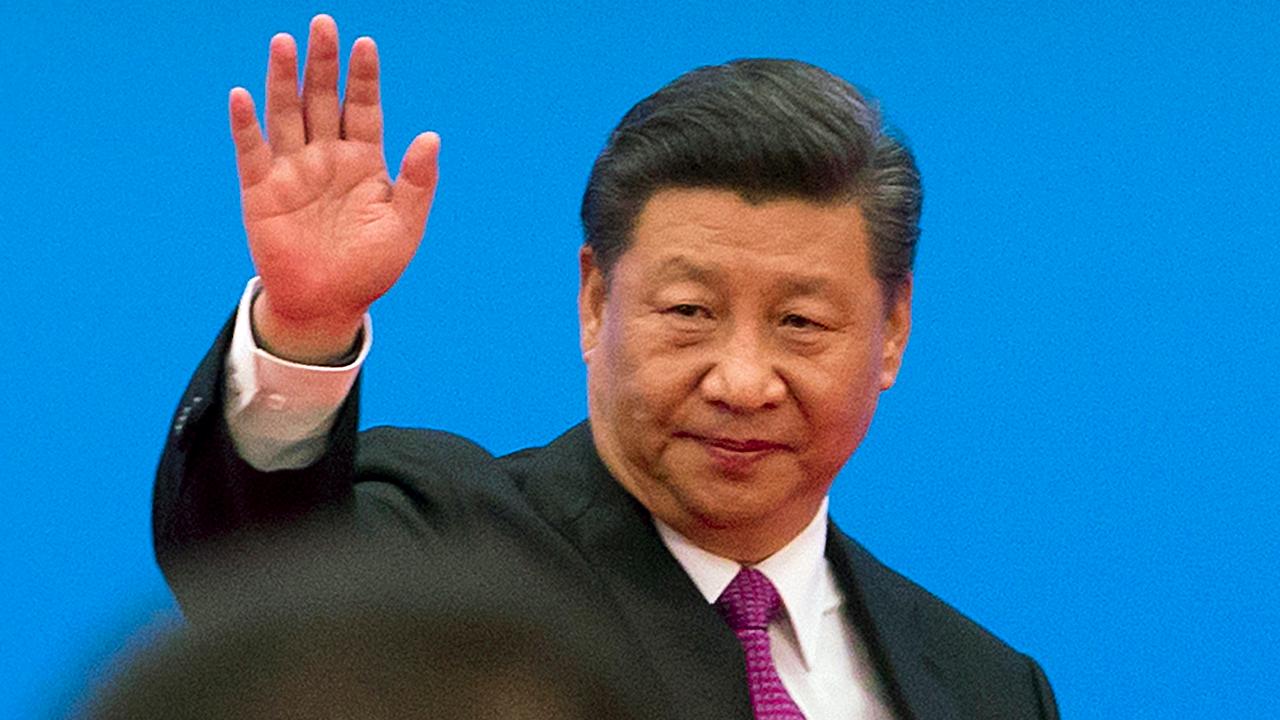China's leaders once courted Li Ka-shing for his money and star power. But today, with protests engulfing Hong Kong, the billionaire is the target of public ridicule by Beijing as it tries to undercut the power of the city's tycoons.
By TOM LASSETER, FARAH MASTER, CLARE JIM and KEITH ZHAI
 EVEN-HANDED PLEAS: Li Ka-shing's calls for both the authorities and the protesters to show restraint in Hong Kong did not go down well in Beijing.
EVEN-HANDED PLEAS: Li Ka-shing's calls for both the authorities and the protesters to show restraint in Hong Kong did not go down well in Beijing.
HONG KONG – In January of 1993, an ambitious Chinese Communist Party boss, a 39-year-old official with chubby cheeks and a mop of black hair, visited Hong Kong.
He was seeking out the city’s rich among the shimmering skyscrapers, hoping to secure investment in Fuzhou, the second-tier city he ran in mainland China.
His name was Xi Jinping.
That August, Xi received a guest back home.
Hong Kong’s most famous tycoon, Li Ka-shing, known locally as “superman” for his business acumen, had come to town.
A photograph from the event shows Xi grinning as he walked beside Li, who held a bouquet of flowers in his hand.
In the background, a long banner hung with the message to “warmly welcome” Li Ka-shing.
During those days, in the aftermath of the 1989 Tiananmen crackdown, Beijing was desperate to fire up a languishing economy.
National leaders and provincial potentates were courting Li for his cash and the star power his name brought to development projects on the mainland.
That time has passed.
Xi is now the strongman leader of a rich and rising power that controls Hong Kong.
Instead of feting the 91-year-old businessman, Beijing has harangued him for failing to deliver in the rebellious city.
When the Party was looking for a chorus of influential voices to counter the protests that began this summer, Li offered only even-handed pleas for restraint.
In an online video of comments he made at a monastery, Li called for “humanity” when dealing with young protesters.
The response was brutal.
The Party’s central legal affairs commission in Beijing publicly accused Li of “harboring criminality” and “watching Hong Kong slip into the abyss.”
A pro-Beijing trade union leader in Hong Kong posted a Facebook item mocking him as the “king of cockroaches” with an image that pasted Li’s head atop a picture of a fat insect.
“In the world of social media, some people are hard at work in sowing toxic doubts and disinformation to undermine trust,” Li said in a written response to questions from Reuters.
“It is hard not to be drawn into controversies [in] these times.”
As the Beijing-backed government of Hong Kong cracks down on the demonstrators in the streets, there is another tightening of the leash happening, mostly behind the scenes: China’s efforts to throttle the power of Hong Kong’s tycoons.
Li and other tycoons have long held dominion over Hong Kong, tracing its post-World War II economic rise through manufacturing, real estate and finance.
But the ascent of Xi Jinping, who became General Secretary of the Chinese Communist Party in 2012, has fundamentally altered the status quo.
 BILLIONAIRE RECEPTION: Chinese President Xi Jinping (right) greets Li Ka-shing (left) during a visit to the city in 2017. After Xi came to power, Beijing’s attitude toward the city hardened.
BILLIONAIRE RECEPTION: Chinese President Xi Jinping (right) greets Li Ka-shing (left) during a visit to the city in 2017. After Xi came to power, Beijing’s attitude toward the city hardened.
Xi is a leader who “thinks that he is like the emperor,” said
Willy Lam Wo-lap, a veteran observer of elite Beijing politics at the Chinese University of Hong Kong.
“So, he thinks that Hong Kong business people should definitely profess undying loyalty to the emperor, to Xi Jinping.”
The vilification of the city’s preeminent capitalist was a rare public display of the new power dynamic, businessmen and analysts say.
It sent a clear message that Li and his fellow Hong Kong tycoons must toe the line and unequivocally condemn the protests, which present the most serious challenge to Communist Party rule since Tiananmen.The now-scrapped legislation that sparked the recent unrest would have allowed for extraditions from Hong Kong to mainland China.
It also provided an avenue for the seizure of assets, according to a statement by the Hong Kong Bar Association.
That could have exposed the city’s tycoons to the same fate as wealthy mainlanders who have been stripped of assets in Xi’s anti-corruption drive.
Shortly after protests over the bill escalated in early June, some wealthy Hong Kongers began moving money outside of the region or setting up accounts that would allow them to do so, according to six private bankers whose institutions collectively handle hundreds of billions of dollars in assets.
Reuters spoke with half a dozen people, including current Li executives, who have had personal relationships with the property mogul or worked alongside him over his career.
Li stepped down last year and was succeeded by his eldest son as chairman of his two main companies but remains the biggest shareholder.
China’s foreign ministry declined to answer questions from Reuters.
The Hong Kong and Macau Affairs Office did not respond to a request for comment.
For all the vitriol aimed at Li in recent months, this was not a sudden split.
Before protests convulsed Hong Kong, he was already loosening his economic ties to China.
At the start of this century, his flagship Hutchison Whampoa Ltd got much of its money from Hong Kong and the mainland: 56% of earnings before interest and taxes.
Last year that figure at his current flagship firm was 14%.
Since 2015, Li's corporate empire has been involved with more than $70 billion in acquisitions globally.
Less than $1 billion of that was in Hong Kong and mainland China, according to a Reuters analysis of Li’s deals worth $500 million or more.
Asked about those numbers, a spokesperson for Li said that as Hutchison Whampoa sought large acquisitions overseas in the late 1990s and early 2000s, “the diversification changed the geographical proportions, but we are nevertheless growing in the mainland and in Hong Kong.”
In addition, the spokesperson said, a 2015 reorganization of the group brought down the proportion of earnings from the region for the current flagship.
Shifting large business interests out of China’s immediate orbit carries the risk of offending mainland officials, especially as Beijing exerts greater control of Hong Kong, said
Simon Murray, a former managing director at Li’s sprawling corporate operation who has known the billionaire for decades.
 SHOWDOWN: Protesters clash with police earlier this month in Hong Kong’s Central district. The extradition bill, which triggered the protests, sparked anxiety among the city’s wealthy.
SHOWDOWN: Protesters clash with police earlier this month in Hong Kong’s Central district. The extradition bill, which triggered the protests, sparked anxiety among the city’s wealthy.
“Everybody who is anybody at all in Hong Kong has got one eye on how the mainland sees that,” he said.
“And you’ve got to build your bridges with them, otherwise they could confiscate.”
For Li, a billionaire in his autumnal years, the tensions with Beijing mark a dramatic turn.
For decades, he enjoyed a position of eminence under Deng Xiaoping and then Jiang Zemin -- the two men who led China from the late 1970s to the early 2000s.
Li was on committees that drafted Hong Kong’s Basic Law, the mini-constitution governing the city since it was handed to Beijing by the British, and on a body that selected its first government.
Li’s entire life has been framed by the swings of history in Hong Kong and, looming on its edge, mainland China.
He was born in 1928 in the river city of Chaozhou, a place known for its local Chinese opera and embroidery work.
When he was a child, the southern Chinese city was a target for Japanese bombing runs.
He quit school as a 12-year-old boy and his family fled south down the coast to Hong Kong, then a British colony.
Hong Kong fell to the Japanese in 1941.
During that occupation, there were food shortages, malnutrition and disease.
Li’s father died from tuberculosis not long after they arrived.
His company biography describes what came next: “Before he was 15, Mr. Li had to shoulder the responsibility of providing for his family and found a job in a plastics trading company where he labored 16 hours a day.”
During a 1998 interview with public broadcaster Radio Television Hong Kong, Li spoke of his mixed feelings when he went back to the mainland in 1978 for the first time in decades.
He’d made a fortune in Hong Kong building his way from manufacturing to real estate to finance. The next year, he became the first Hong Kong Chinese investor to take control of one of the British “hongs,” the great trading houses that accompanied colonial rule from the 19th century.
But looking at his motherland, newly emerged from the chaos of Mao Zedong’s rule, Li said he hesitated to invest.
“I was afraid that people might say Li had come to exploit,” he said in the interview.
Li’s doubts about mainland control of Hong Kong appear to be longstanding.
Britain’s conversation with China about the future handover of Hong Kong began heating up in the 1980s.
Even back then, Murray said, Li discussed his anxiety about the financial future of his corporate empire.
Murray said that Li asked him to “go over to the UK and find a nice company for us to put some money in.”
That led to Li buying up a stake of more than 4% in Pearson Plc, a British conglomerate, in an early foray into Western markets that brought wider attention.
Murray recalled: “It was on the front page of every bloody newspaper.”
Asked about the tycoon’s concerns at the time, Li’s spokesperson said: “Anyone, especially if one is leading a company with other shareholders, has to have a degree of paranoia as it is part of responsible leadership. The Chinese [have] a traditional saying: 生於憂患,死於安樂, ‘strive in hard times, perish in contentment.’ A certain degree of paranoia prevents the reverse case happening.”
After Xi Jinping's visit to Hong Kong in 1993, Li was given the celebrity welcome in Fuzhou, the provincial city Xi then oversaw.
The billionaire, who was involved in a redevelopment project there, attended a groundbreaking ceremony with Xi where they laid a foundation stone, according to local media reports.
“It was like a Buddha came to town to build a temple,” said Ruan Yisan, an architecture professor in Shanghai acclaimed for his historical preservation projects who opposed the development.
“Officials thought he could do magic here and change the city in a dramatic way.”
At the time, Li had outsized impact in China.
In September of 1997, about two months after the handover of Hong Kong, China was on the verge of its largest-ever stock offering, a state-owned telecommunications company preparing to list on the Hong Kong and New York exchanges.
At the last minute, a group of Hong Kong tycoons backing the listing of China Telecom got spooked by a financial crisis roiling the region.
They said they wanted to renegotiate an agreement that required them to hold their stakes for a year, or drop out completely.
It was just weeks before the listing went to market.
 EARLY ANXIETY: Simon Murray, a former managing director at Li’s group of companies, seen here in this 2012 photo, was sent by the billionaire to the UK in the 1980s to look for investments as discussions about the handover of Hong Kong to China gained momentum.
EARLY ANXIETY: Simon Murray, a former managing director at Li’s group of companies, seen here in this 2012 photo, was sent by the billionaire to the UK in the 1980s to look for investments as discussions about the handover of Hong Kong to China gained momentum.
Li beckoned a group of Chinese bureaucrats and bankers to his Hong Kong office.
He told them that he had signed a contract and would abide by it, according to a banker who was in the room.
Then, the Chinese banker said, the billionaire went one step further: He offered to buy a larger stake if necessary.
Li helped salvage the deal, which became a template for a flood of state-owned Chinese companies raising billions of dollars through public listings.
It was the sort of moment that made Li, with his trademark large black-framed glasses, Hong Kong’s most fabled businessman.
“Mr Li is not a man to break an agreement easily,” the spokesperson for the billionaire said.
Inside China, though, even Li found that the opaque nature of doing business could mean problems, according to those who have worked with him and his own public remarks.
In the public broadcaster interview, Li detailed his frustrations with building Oriental Plaza.
A sprawling development in the heart of Beijing, the project faced political wrangling and loud public disagreement about its size as it went up in the 1990s.
His Chinese partners, he said, gained a 40% share of the project, up from an initial 10% or so.
Li said he had learned a lesson.
“In a political and cultural center like Beijing, one has to put business and economics in a lesser position,” he said.
“Although I’ve run into all sorts of trouble, I now have a better understanding of China.”
After Xi took power, Beijing adopted a harder line toward Hong Kong.
In a 2014 white paper, Beijing said the autonomy the city enjoys was not a given but, instead, contingent on the permission of the central leadership.
And Li himself began facing criticism from Chinese state media.
During late 2014 and early 2015, Li folded his Hong Kong-registered Hutchison Whampoa and another company into firms incorporated in the Cayman Islands.
Li’s team says the changes were part of a “streamlining and succession plan.”
In September 2015, in the wake of reports of those moves, Li was excoriated by mainland media outlets as insufficiently patriotic.
The People’s Daily, the main mouthpiece of the Communist Party, posted a commentary on social media saying that Li was happy to “enjoy the benefits when things are good” but couldn’t be counted on in tough times.
Li released a statement affirming his support of Beijing’s leadership, adding: “The Company, as always, will continue to look for investment opportunities around the world, including mainland China.”
In that period, though, companies under Li’s control were plowing billions of dollars into stakes of firms abroad while pulling back in Hong Kong and on the mainland.
That trend hasn’t slowed.
Since 2015, Li’s companies have been involved in acquisitions abroad worth more than $70 billion, in places like Canada, Italy and Australia.
In that same period, he participated in just one acquisition in mainland China and Hong Kong worth $500 million or more -- an $848 million stake in a Hong Kong-based shipping firm that he purchased with two other investors.
And in those same years, Li divested from four companies in Hong Kong and the mainland, totaling more than $11 billion.
Reuters calculated these tallies using figures from Dealogic, a financial data provider, involving deals by Li’s companies worth $500 million or more, including debt.
“We have many projects in China,” Li’s spokesperson said, without disputing the deal figures. Among Hong Kong companies, he added, Li’s group “is the largest investor in the mainland and is thriving in numerous industries.”
Beyond investments, the Communist Party has other demands of Hong Kong’s tycoons.
Xi Jinping’s directive was unambiguous at a 2017 meeting between the Chinese leader and the city’s elite, said a senior executive at a major Chinese state-owned enterprise in Hong Kong.
Li was in attendance.
“Xi’s message was very clear -- that the business community and the tycoons need to uphold social responsibility, and to help the central government maintain the social stability of Hong Kong,” said the executive.
That expectation grew more urgent as the protests shook Hong Kong.
Chinese officials have come to think the city’s concentration of wealth is a major source of the discontent, said Allan Zeman, a prominent businessman and economic adviser to Hong Kong’s Beijing-backed leader, Carrie Lam.
A system of land auctions, which extend back to British rule, allowed a small set of people to corner the market, Zeman said, pushing prices up to a point where no one else could bid.
That dynamic leaves housing so expensive that families are crammed into tiny dwellings and upward mobility is limited.
 UNCERTAIN TIMES: Li Ka-shing with former British Prime Minister Margaret Thatcher shortly before handover celebrations in Hong Kong’s Convention and Exhibition Center in 1997.
UNCERTAIN TIMES: Li Ka-shing with former British Prime Minister Margaret Thatcher shortly before handover celebrations in Hong Kong’s Convention and Exhibition Center in 1997.
 CITY ELITE: Li shakes hands with Carrie Lam before voting during the election for the city’s chief executive in March 2017.
CITY ELITE: Li shakes hands with Carrie Lam before voting during the election for the city’s chief executive in March 2017.
“It made ‘five families’ very, very rich,” said Zeman, referring to the city’s biggest developers.
The developers, Zeman said, now understand.
He noted that in September a Hong Kong company, New World Development Co Ltd, announced it was setting aside three million square feet of its land holdings for low-income housing.
Asked whether the decision was the result of pressure from Beijing, New World said it hoped “to inspire more people to generate creative approaches to solve Hong Kong’s housing challenge.”
Meanwhile, in early September, China’s State-owned Assets Supervision and Administration Commission (SASAC) gathered executives from the nation’s largest state-owned firms in the nearby mainland city of Shenzhen.
According to an executive familiar with the meeting, SASAC officials gave clear marching orders to the Chinese managers: take more control of Hong Kong firms and seek decision-making power within them.
SASAC did not respond to questions from Reuters.
When Britain returned Hong Kong to China in 1997, the two sides agreed the city would enjoy a high degree of autonomy under its own governing charter, for half a century.
Businesspeople here say that until very recently, 2047 -- the date China is set to impose full control -- seemed distant.
To be sure, said the head of a private banking operation in the city, most of Hong Kong’s prominent families have been diversifying their personal wealth overseas for many years.
The executive works at one of the five largest private banks in the Asia-Pacific region, which handles more than $200 billion in assets.
“For some of these tycoons, 2047 was not a very major consideration,” he said.
That changed as Beijing began to flex its muscles.
One event that caught the tycoons’ attention, he said, was the 2017 disappearance of China-born billionaire Xiao Jianhua.
Xiao was last seen leaving a luxury Hong Kong hotel in a wheelchair with his head covered, accompanied by unknown men.
In its annual human rights report, the U.S. State Department said that “multiple press reports stated he was abducted by state security agents from the mainland.”
Xiao’s whereabouts are unknown.
No Hong Kong billionaire has suffered a similar fate.
China’s Ministry of Foreign Affairs declined to answer questions about Xiao.
Private bankers say the extradition bill dealt a fresh shock.
One financial adviser told Reuters he was involved in a transaction in which a Hong Kong tycoon shifted assets of more than $100 million, between June and August, from a local Citibank account to one in Singapore.
“The extradition bill was the spark, but the fears are much more deeper and broader than that,” the financial adviser said.
“I think what we’ve seen is a structural shift away from Hong Kong as a place of relative safety.”
Today, interviews with people who know Li well point to a man anxious about Hong Kong’s future under tighter mainland Chinese rule.
“His attitude to China is one of fear: These guys can take everything I’ve got,” said Murray, his longtime corporate lieutenant, who left the Li group in 2017.
“Simon has his own interpretations but they are not necessarily Mr Li’s,” the billionaire’s spokesperson said, responding to Murray’s remarks.
“The central government has reiterated many times that it is committed to openness and reforms.”
Still, as the pressure from Beijing mounts, Li has not humbled himself before the Communist Party.
“When you are my age, you will know how to cut through the noise,” Li said in his letter to Reuters. “I don’t know if it is a concerted effort, but I am getting used to all the unfounded verbal and text punches.”
 LOCAL LANDMARK: Demonstrators attend a lunchtime protest in early October near the Cheung Kong Center building (right) where Li Ka-shing has his headquarters.
LOCAL LANDMARK: Demonstrators attend a lunchtime protest in early October near the Cheung Kong Center building (right) where Li Ka-shing has his headquarters.




 BILLIONAIRE RECEPTION: Chinese President Xi Jinping (right) greets Li Ka-shing (left) during a visit to the city in 2017. After Xi came to power, Beijing’s attitude toward the city hardened.
BILLIONAIRE RECEPTION: Chinese President Xi Jinping (right) greets Li Ka-shing (left) during a visit to the city in 2017. After Xi came to power, Beijing’s attitude toward the city hardened.  SHOWDOWN: Protesters clash with police earlier this month in Hong Kong’s Central district. The extradition bill, which triggered the protests, sparked anxiety among the city’s wealthy.
SHOWDOWN: Protesters clash with police earlier this month in Hong Kong’s Central district. The extradition bill, which triggered the protests, sparked anxiety among the city’s wealthy.  EARLY ANXIETY: Simon Murray, a former managing director at Li’s group of companies, seen here in this 2012 photo, was sent by the billionaire to the UK in the 1980s to look for investments as discussions about the handover of Hong Kong to China gained momentum.
EARLY ANXIETY: Simon Murray, a former managing director at Li’s group of companies, seen here in this 2012 photo, was sent by the billionaire to the UK in the 1980s to look for investments as discussions about the handover of Hong Kong to China gained momentum.  UNCERTAIN TIMES: Li Ka-shing with former British Prime Minister Margaret Thatcher shortly before handover celebrations in Hong Kong’s Convention and Exhibition Center in 1997.
UNCERTAIN TIMES: Li Ka-shing with former British Prime Minister Margaret Thatcher shortly before handover celebrations in Hong Kong’s Convention and Exhibition Center in 1997.  CITY ELITE: Li shakes hands with Carrie Lam before voting during the election for the city’s chief executive in March 2017.
CITY ELITE: Li shakes hands with Carrie Lam before voting during the election for the city’s chief executive in March 2017.  LOCAL LANDMARK: Demonstrators attend a lunchtime protest in early October near the Cheung Kong Center building (right) where Li Ka-shing has his headquarters.
LOCAL LANDMARK: Demonstrators attend a lunchtime protest in early October near the Cheung Kong Center building (right) where Li Ka-shing has his headquarters. 









 Protesters demand that Hong Kong leaders withdraw the extradition bill at a demonstration on June 16.
Protesters demand that Hong Kong leaders withdraw the extradition bill at a demonstration on June 16.
